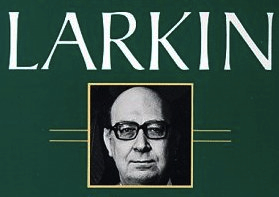The New Hustle: Artists in the Digital Age

Enjoy the article, then check out the Big Think, Short Fiction Contest (#1: Sci Fi) – an Iron Chef-style event in partnership with Storiad.
The Unrealized Utopia of DIY Artistic Success
There was a lot of unexamined fist-pumping among the youth of 1998 when Napster “took down” the music industry. “Screw your royalties!” ran the discourse – “power to the artists!” Amen to that, but the fog of digital revolution has cleared to reveal a lot of dazed, befuddled musicians picking for scraps amongst the wreckage. This chart from the blog Information is Beautiful paints a clearer picture. Not that it was ever easy, but musicians today, signed or otherwise, have a tough time making money from their music – first, because even on the rare occasions when people pay for it, music isn’t worth much on the digital market. Second, because more channels and ease of distribution means more competition for people’s attention.
In order to survive, many of today’s performing artists and musicians need to become an industry of one, creating and managing diverse revenue streams from live appearances, merchandise, rights, and royalties. This demands a rare mix of artistic talent and business acumen (see Ani DiFranco – singer/songwriter and founder of Righteous Babe Records, for a precociously pre-digital model), or the help of some really good friends.
Labyrinthine though the new landscape may be, it enables some artists to hold on to more of the revenue they create. Comedian Louis C.K. (who, to be fair, was pretty famous already), is distributing his latest concert video online for $5 a pop, placing no regional or DRM restrictions whatsoever on it after purchase. In the 12 days after the online store launched, he made a million dollars (he describes here what he did with the money).
The Plight of the Self-Published E-Author
Amazon now makes it possible for anyone to self-publish an ebook. That was supposed to make big publishing tremble in its boots, and to empower the undiscovered novelist, but it didn’t – at least not at first – because self-published authors were still faced with the problem of “discoverability”: how to get noticed by anyone at all without the massive publicity engines of a Random House or a Simon & Schuster behind you. But with ebook sales increasing and Amazon’s Kindle so cheap you almost can’t afford not to own one, big publishing’s business model is starting to look like ENIAC in the age of the iPhone.
The utopia of instant, effortless DIY success for writers remains a pipe dream. Still, digital distribution and online networking are reshaping the landscape, calling into question the established paths to artistic fame and fortune (or, at least, to being in a position to quit your day job). Editors considering a book proposal now take into consideration things like how many Twitter followers the aspiring author has. Digital-only publishers like Open Road Integrated Media (founded by Jane Friedman – former CEO of HarperCollins) now acquire the rights to manuscripts old and new, publishing and marketing them without the heavy baggage of warehouses and book factories.
For aspiring authors, the rapid pace of change may raise more questions than it answers. Should I publish directly to e-book and hire a publicist on commission? Do I need an agent? Do agents even have an insider’s edge anymore?
Storiad – a networked marketplace for writers
Into this vacuum steps Storiad, an intriguing new approach to empowering writers and connecting them with the right buyers for their work. Founded by Ramzi Hajj, a short story writer and aspiring novelist with an MBA in Economics and Statistics from U. Chicago, Storiad aims “to introduce some pull into a typically ‘push’ market”: you put your writing out there via Storiad, media professionals can access it, and, if they’re interested, they call you.
According to its website, Storiad allows you, the writer, to:
While Storiad is relatively new, and its success will depend upon the use writers and buyers make of it, Ramzi and his team have created an innovative solution to the problem of discoverability in the digital age.
I asked Ramzi a few questions that might occur to any writer considering whether Storiad is worth their while.
If I’m a writer, what can Storiad offer me that an agent cannot?
RH Using Storiad and working with an agent aren’t, necessarily, mutually exclusive. We ask writers to think of Storiad as an efficient, cost-effective way to supplement their current marketing efforts. Generally speaking, working with an agent limits writers to consideration at publishing houses with which the agent has existing relationships. Being on Storiad, however, opens writers to more competitive, market-driven consideration, where demand follows supply (and vice versa, to be sure), affording the writer exposure and competitive commercial advantages they wouldn’t enjoy working with one agent. As we remind writers all the time: “you never know who in the wide-world is looking to read, buy, produce that very thing you’ve written, are writing, or will write.”
How does Storiad intelligently connect writers and the specific content providers who are likely to want their work?
RH Storiad is committed to developing technologies to efficiently match the sellers of written content with the buyers of written content. Like any well-functioning marketplace, the more writers and available (read: salable) projects we attract to Storiad, the more media professionals will follow. And the more media professionals we feature on Storiad, the more writers and available projects will join. And on. Both sides benefit, as the right story will efficiently get to the right audience at the right time for the right price.
Why is Storiad an essential intermediary between the writer and content providers?
RH Storiad places the right writer in touch with the right content distributor (say a magazine publisher or film producer) in a more efficient, more cost-effective manner than more traditional methods. By introducing a bit of “pull” into the more traditional “push” market, content distributors have a centralized database from which to pull the right content, from the right writer, at the right time, for the right price. This, in turn, opens up venues/audiences for writers who may have been constrained due to lack publication history, outlets, and/or industry contacts.
In what ways does Storiad facilitate the growth of a community and culture of independent writers?
RH First and foremost, Storiad is about writer connections and sharing. As writers ourselves, we understand the importance of the creative/collaborative process. We understand that audiences can be elusive. We understand that that there is “safety” in numbers, where many writers connecting and networking is infinitely more productive and rewarding than the solitary writer trying to make it alone in a loud, crowded world. Storiad provides writers with very cost-effective (if not outright free) tools from which to collaborate with one another, share their work with audiences, and gain a sense of ownership of the Storiad writer’s network they are helping to build.
Can you share any fairytale connections that Storiad has facilitated? One or two great stories of professional relationships between writers and publishers or producers that wouldn’t likely have happened without Storiad
RH Our favorite “fairy tale” story involves variations on this Storiad experience: a publisher in Sacramento, California joins Storiad, searches the Storiad database for a novel about contemporary, urban teenage girls, finds a very interesting story written by a young woman in Portland, Maine. She has no “formal”, paid publication history. The publisher establishes contact with her to request the full manuscript. The publisher sees the market potential of this witty, quirky, utterly unique story. They discuss. And discuss some more. They come to terms on getting her book out to the audience it deserves. And now the really hard part begins! We like to call this the “Storiad love connection”.
Follow Jason Gots (@jgots) on Twitter
Image credit: Shutterstock.com





